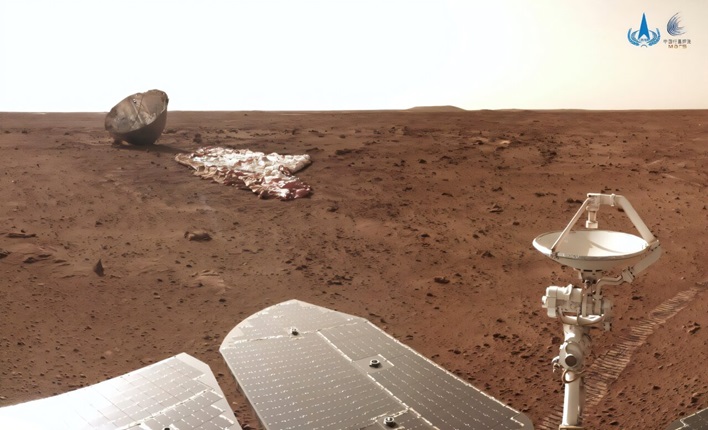China’s Mars Rover Finds Evidence Of An Ancient Ocean From 3.5B Years Ago
The data collected by the Mars rover was during the Tianwen-1 mission, and shows an ancient sea could have left rock deposits on Mars’ surface 3.5 billion years ago. The latest study indicates the likely transition of Mars being a vast ocean world, to what it is today, being from the Noachian Period to the Hesperian Period.
Researchers involved in the study remarked, “We conducted a comprehensive geomorphological analysis of the landing area using remote sensing data, supplemented by in situ observations, and unveiled features consistent with the existence of a nearshore zone in southern Utopia.”

Some are not as quick to celebrate the findings because they believe strong Martian winds could have caused the worn down rocks over the last few billion years. Benjamin Cardenas, a scientist who has performed research for evidence to a Martian Ocean, remarked in an interview, “We tend to think of Mars of being not very active, like the moon, but it is active!” Cardenas added that past modelling research has suggested “even the slow Martian erosion rates” would ultimately destroy any signs of past shoreline.
However, while Bo Wu of the Hong Kong Polytechnic University and lead study author, acknowledged wind may have worn down some rocks on the Martian surface, the impact of meteors slamming into Mars throughout its lifetime can also “excavate underground rock and sediment to the surface from time to time.”
Only time and more data will tell whether Mars was once home to vast oceans. Scientists such as Bo Wu and Cardenas believe finding out the truth will go a long way in proving whether Earth is the only planet in the solar system capable of hosting life.


